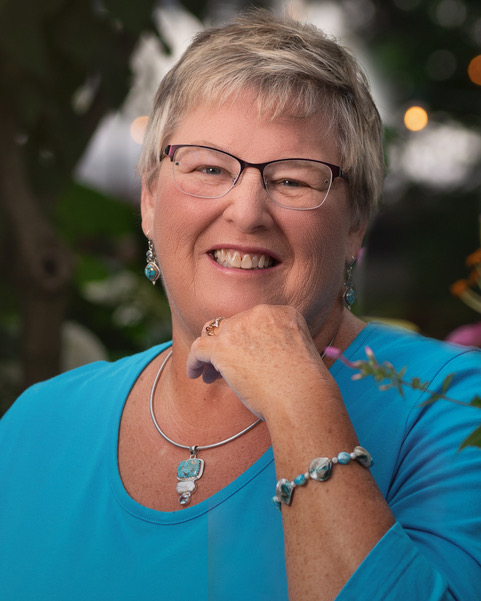3 Ways to Recognize and Silence the Real Devil
Debbie W. Wilson's blog is about refreshing faith. It's full of positive counsel to grow in hope and spiritual maturity. She recognizes some of the struggles in the walk of faith, like dealing with a very real devil.  In this Discernment UPGRADE, Debbie shares three ways to deal with the devil's attacks—to stop him in his tracks!
In this Discernment UPGRADE, Debbie shares three ways to deal with the devil's attacks—to stop him in his tracks!
"On Halloween, horned devils and gruesome looking goblins may show up at your door asking for treats," she said. "However, the real devil is much more subtle—and dangerous."
I (Dawn) think the scary thing is that—even though people wear red horns and costumes of what they mistakenly think the devil looks like—so many people don't believe the devil is real! How do we silence the devil if we don't believe he exists? Debbie has some profound thoughts here.
Debbie continues . . .
For several weeks the thought that an answer I’d given at Bible study had misled and confused my friend taunted me. I hadn’t seen her to address it.
Over mugs of steaming tea, I asked, “Can I ask you about the question you raised in Bible study?”
Her brown eyes widened. “What question? I don’t remember a question.”
I’d worried my answer to my friend’s question had led to an inaccurate understanding of the topic. Her response showed I’d been duped by our spiritual enemy’s lies and accusations—again.
The Bible describes our spiritual enemy, the devil, as a roaring lion that prowls around looking for someone to devour (1 Peter 5:8). He is “the accuser of our brothers and sisters” (Revelation 12:10).
Are you familiar with his accusations?
Satan also sows seeds of fear and doubt.
After a medical appointment, I mentioned to my husband what the nurse had said in passing that had left me feeling discouraged.
“That sounds like a poisonous dart,” he said.
“Reading through the Gospel of Mark, I’ve noticed that the first thing Jesus does when He meets someone tormented by demons is to tell the demons, ‘Be quiet.’”
The enemy had used this woman’s medical position to give her words power they didn’t deserve.
So how do we protect ourselves from the devil’s arrows?
Dealing with the Real Devil's Attacks
1. Stay Alert!
“Stay alert! Watch out for your great enemy, the devil. He prowls around like a roaring lion, looking for someone to devour” (1 Peter 5:8 NLT).
Copperheads live in our area. When I’m outside during warm months, I look where I’m gardening and where my dogs walk. Like copperheads, Satan blends in with otherwise safe and normal surroundings.
Knowing he is there should make us alert, not afraid.
Notice how Peter describes our enemy:
- He prowls: my computer dictionary defines this as, “move around restlessly and stealthily, especially in search of … prey.”
- He slips in when we are weary or our defenses are down, like when we are in so-called safe places—like Bible study or a doctor’s appointment.
- Roaring: Lions roar to paralyze and intimidate their prey.
- I read that a lion’s intimidating roar can be heard up to 5 miles away. Their roars scare off hyenas and send fear through those they hunt. Lions that are too weak to hunt roar to scare off would-be attackers.
- Looking for someone to devour:
- The devil is always looking for opportunities to pounce. His goal is to destroy—our faith, joy, peace, fruitfulness, and relationships.
2. Be Discerning
Satan masquerades as an angel of light, pretending to offer correction. Yet, Satan just accuses and condemns.
While Satan hurls vague accusations of guilt and shame and offers no constructive steps to change, Jesus is our advocate.
The Holy Spirit’s correction is always specific, clear, and empowering (2 Corinthians 7:10). The Holy Spirit never shames you.
When we are in a spiritual battle, other believers can help us find truth. Let a trusting believer know your battle.
My husband’s insight exposed the dart and freed me.
3. Follow Jesus’s Example
If a fear or accusation continues to taunt you after you’ve confessed it, you are dealing with one of Satan’s fiery arrows.
If you feel guilty but have no clear wrong to confess, use your delegated authority (Ephesians 1:18-23) and follow Jesus’s example.
Tell the accuser, “Be quiet” (Mark 1:25).
I’d like to hear your insights. What helps you recognize and stop the real devil’s attacks?
 Debbie W. Wilson is an award-winning author, Bible teacher, and former Christian counselor who speaks and writes to connect fellow sojourners to the
Debbie W. Wilson is an award-winning author, Bible teacher, and former Christian counselor who speaks and writes to connect fellow sojourners to the heart of Christ. She and her husband lead Lighthouse Ministries, a non-profit Christian counseling and Bible teaching ministry. Despite time in Boston, the Midwest, and Southern California, Debbie still says y’all. Her family, which includes two grown children and two mischievous standard poodles, calls North Carolina home. Connect with Debbie, find free resources, and learn about her books, including her new release Little Strength, Big God at debbieWwilson.com.
heart of Christ. She and her husband lead Lighthouse Ministries, a non-profit Christian counseling and Bible teaching ministry. Despite time in Boston, the Midwest, and Southern California, Debbie still says y’all. Her family, which includes two grown children and two mischievous standard poodles, calls North Carolina home. Connect with Debbie, find free resources, and learn about her books, including her new release Little Strength, Big God at debbieWwilson.com.
Graphic adapted: Courtesy of Mikhail Nilov at Pexels.
 Post a Comment → Posted on
Post a Comment → Posted on  Tuesday, October 31, 2023 at 11:02AM
Tuesday, October 31, 2023 at 11:02AM  1 Peter 5:8,
1 Peter 5:8,  Attacks of the Devil,
Attacks of the Devil,  Debbie W. Wilson,
Debbie W. Wilson,  Devil,
Devil,  Devil's Attacks,
Devil's Attacks,  Halloween,
Halloween,  Real Devil,
Real Devil,  Roaring Lion,
Roaring Lion,  Satan,
Satan,  The Accuser,
The Accuser,  Upgrade with Dawn Upgrade Your Life
Upgrade with Dawn Upgrade Your Life  Biblical Discernment,
Biblical Discernment,  Biblical Thinking,
Biblical Thinking,  Discernment,
Discernment,  Spiritual Authority,
Spiritual Authority,  Spiritual Maturity
Spiritual Maturity 









